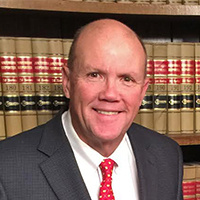Clio White Collar Crime Lawyer, Alabama
Sponsored Law Firm
-
 x
x

Click For More Info:
-
The Law Offices of Richard L. Cooper, P.A.
848 Brickell Avenue Suite 800 Miami, FL 33131» view mapDWI/DUI, Drug Trafficking, Felony Nationally Ranked Top 40 Under 40
With Richard L. Cooper you can expect a trusted confidant who will work diligently to fully understand your case and determine a road map to help you regain control of your life.
800-756-2781
Not enough matches for Clio White Collar Crime lawyer.
Below are all Clio Criminal lawyers.
William B. Matthews
✓ VERIFIEDWilliam Matthews, Jr. is a practicing lawyer in the state of Alabama specializing in Divorce & Family Law; Criminal; Accident & Injury; Bankruptcy & D... (more)
James A. Jacobs
✓ VERIFIEDFirst licensed to practice law in Alabama in 2003, Attorney James A. Jacobs is a sincere and compassionate professional who cares about his clients an... (more)
Thomas S. Smith
✓ VERIFIEDABOUT OUR DOTHAN, ALABAMA LAW FIRM When you hire the team at Smith Law Firm, to work on your behalf, you have the benefit of knowing that we will tak... (more)
Scott Smith
✓ VERIFIEDScott Smith became an attorney out of his desire to help others. “Too many times individuals are faced with legal situations they are unable to nav... (more)

 Richard L. Cooper Miami, FL
Richard L. Cooper Miami, FL AboutMiami Attorney at Law
AboutMiami Attorney at Law ServicesCriminal Defense
ServicesCriminal Defense




